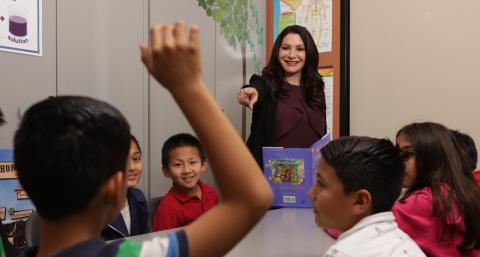SAN DIEGO, CALIF. - The general election in the heavily Democratic California State Senate District 22 (Industry, West Covina) came down two Democrats Tuesday, Susan Rubio and former State Assemblymember Mike Eng. Yet it wasn't the Democratic Party's pick that ended up winning the election.
Rubio, seen as a more independent-minded Democrat, defeated Eng 52-47. Rubio had the endorsement of several current and former elected officials (at the local and state level), nonprofit organizations, public safety associations, women’s groups, and more.
Eng, on the other hand, had the endorsement of the party, as well as the support of top party leaders and Democratic elected officials — names like Toni Atkins, Kevin de León, Anthony Rendon, Ian Calderon, Norma Torres, Adam Schiff, and more.
Yet this election did not come down to who the Democratic establishment wanted, nor did Democratic voters decide its outcome. It was Republican and independent voters who decided the election -- and they went with the candidate not hand-picked by the Democratic Party.
In a previous interview, Rubio explained to me that she reached out to all voters and groups across the political spectrum, with a message that she would put the needs of her constituents before the agenda of a party.
“I have been very successful in getting Republican women groups in particular to be supportive. Even though I am a Democrat and a very active Democrat, I have always cultivated relationships with Republican groups,” she told me. "I don’t represent one party or the other, as it pertains to getting elected. Once you are elected, you represent everyone in the district."
And even in the midst of the massive blue wave that spread throughout California Tuesday, Rubio still proved to have the broadest support among all voters -- rather than just among members of the dominant political party.
Rubio and Eng advanced to the November general election under the state's nonpartisan, top-two open primary. All voters and candidates, regardless of party participate on a single ballot in the June primary, and the top two vote-getters move on to the general election. This can produce contests in heavily Republican or Democratic districts that come down to candidates registered with the same party.
What this means though is that the power to decide the election falls to voters outside the dominant political party. In many cases, these voters look to the candidate who is not the party's pick, as a party endorsement is an indicator of a rank-and-file candidate who will always toe the party line, while leaving voters outside the party feeling marginalized and forgotten.
Rubio says that candidates like her offer voters who would have been completely forgotten under a partisan primary system, a voice in the process:
“In years past when it used to be Republican and Democrats, the reality is party leaders already had their pick — they already knew who they wanted for the seat, and someone more like myself, someone who is not part of the establishment would never be the chosen one. Now, the way the system is designed, someone like myself can get past the primary. Now, we have an independent voice.”
Rubio is a strong defender of the nonpartisan, top-two primary system, and believes every voter should have a chance to be heard, regardless of party.
